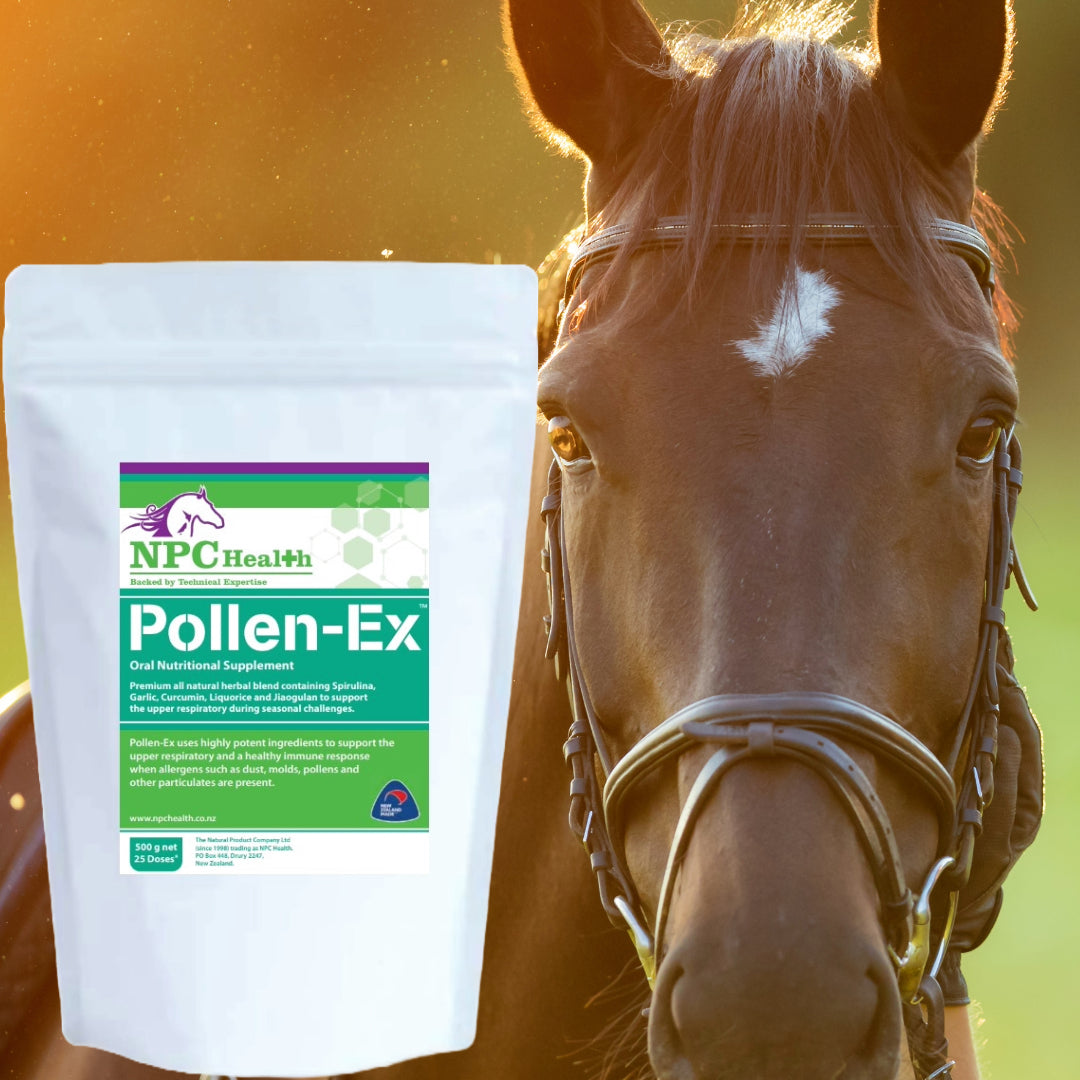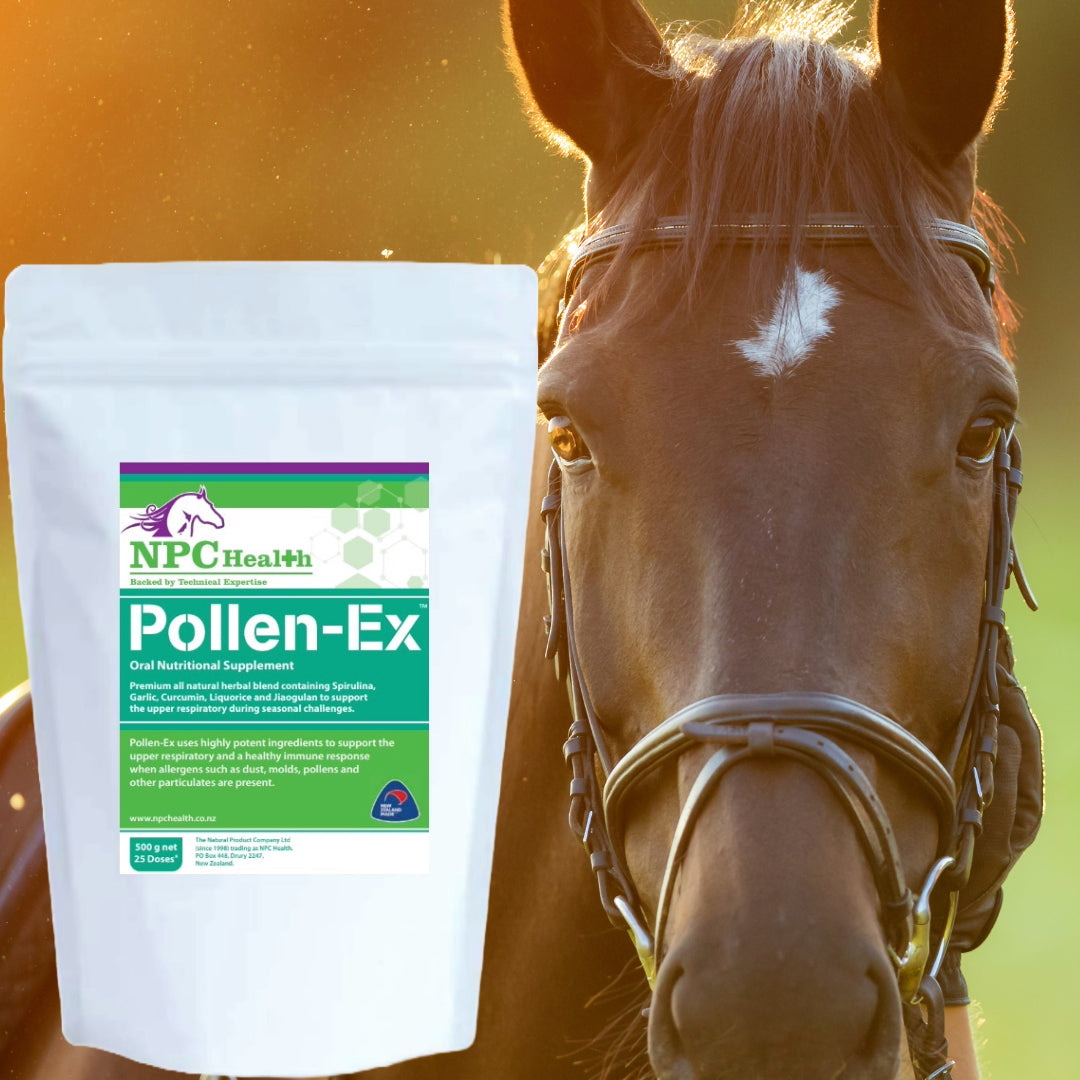Pollen allergy in horses, also known as seasonal allergic rhinitis, is a common condition where a horse’s immune system reacts to pollen from trees, grasses, or weeds. These allergens can cause respiratory issues, especially during certain seasons when pollen levels are high, such as spring and early summer. Pollen-Ex allergy supplement for horses is recommended in conjunction with a good diet.
Pollen-Ex is an allergy supplement for horses using all natural ingredients to support and calm an overactive immune response.
How Pollen-Ex supports health:
- Helps to calm the symptoms of allergy
- Helps to reduce inflammation
- Helps to support healthy immune function
What are the ingredients and Benefits of Pollen-Ex?
- Garlic– a source of the flavonoid quercetin, a natural antihistamine that helps to stabilize mast cells (which release histamine) during allergic reactions.
- Curcumin– a natural anti-inflammatory proven by research to help reduce inflammation in the body. Curcumin is useful to help reduce seasonal allergies or sensitivities and support the upper respiratory.
- Spirulina– a natural antihistamine proven by research helping to calm the histamine response
- Jiao Gulan– natural anti-inflammatory properties proven to help increase circulation. Increasing circulation helps to boost healing.
What are the symptoms allergy?
- Coughing: usually triggered by inhaled dust, mould or pollen
- Nasal discharge: usually an abundance of clear or white mucus discharge from the nostrils. There may also be sneezing.
- Difficulty breathing or noisy breathing: especially during exertion or when the horse is exposed to high levels of mould, pollen or dust
- Exercise intolerance: horses will tire quickly or show signs of discomfort when working.
- Itchy skin: skin irritation, itchiness leading to scratching and rubbing on objects
- Hives: raised, swollen areas or welts on skin
- Head shaking: horses may shake their heads and snort and sneeze from discomfort. It may also trigger the trigeminal facial nerve causing an involuntary head flick
Treatment and Management:
Managing allergies in horses usually involves a combination of treatments and environmental management.
1. Reduce or eliminate exposure
- Limit exposure: If possible, reduce the horse’s exposure keeping them inside during peak pollen hours (usually early morning and late afternoon). Using a stable with good ventilation may also help.
- Dust-free bedding: Using dust-free bedding and hay can also reduce respiratory irritants.
- Clean environment: Regularly cleaning the stable and pasture can reduce pollen and dust exposure.
- Fly masks: These can help protect the eyes from pollen, especially for horses that are sensitive to airborne particles.
2. Allergy Supplements for horses:
- Omega-3 fatty acids: These have anti-inflammatory properties that can help manage allergy symptoms. Fish oil (KER also on our site) is the best source.
- Herbal remedies: Pollen-Ex herbal supplement offers support in managing allergic reactions.
3. Seasonal Management:Skin and Coat Health
- Seasonal challenges: Managing your horse’s workload and reducing exposure to allergens during peak pollen seasons (spring and early summer) can help.





